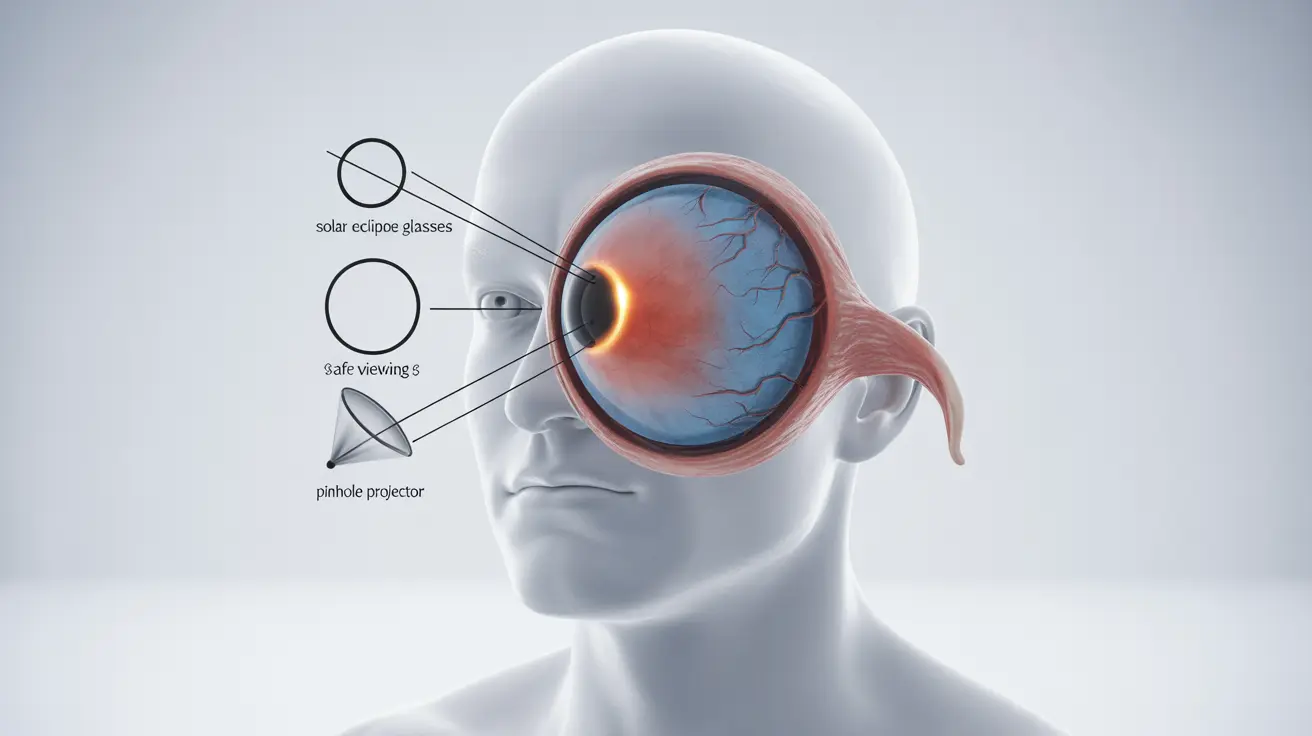Looking directly at the sun, even for a brief moment, can cause severe and potentially permanent damage to your eyes. While it might seem tempting to gaze at this brilliant celestial body, understanding the serious risks involved is crucial for protecting your vision. This comprehensive guide explains the dangers of sun-gazing and how to safely observe solar phenomena.
Understanding Solar Eye Damage
When you look directly at the sun, its intense ultraviolet (UV) and infrared radiation can cause immediate damage to your retina – the light-sensitive tissue at the back of your eye. This condition, known as solar retinopathy, occurs when the sun's powerful rays essentially "burn" your retinal cells, potentially leading to permanent vision problems.
How Sun Exposure Affects Your Eyes
The human eye is remarkably sensitive to light, but it lacks the ability to properly protect itself against the sun's intense radiation. When sunlight enters your eye, it becomes concentrated by your lens and cornea, focusing intense energy onto your retina – similar to how a magnifying glass can focus sunlight to burn paper.
Immediate and Long-term Effects of Sun Exposure
The damage from looking at the sun can occur in seconds, often before you feel any discomfort. Your retina doesn't have pain receptors, so you might not realize the harm being done until it's too late. The effects can range from temporary discomfort to permanent vision loss.
Common Symptoms of Solar Eye Damage
- Reduced central vision
- Distorted vision
- Blind spots in your field of view
- Changes in color perception
- Increased sensitivity to light
- Watery eyes
- Eye pain or discomfort
Solar Eclipse Dangers
Solar eclipses pose a particular risk because the reduced brightness may fool people into thinking it's safe to look directly at the sun. However, even during an eclipse, the sun's harmful rays can still cause severe damage to your eyes. The partial darkness actually makes it more dangerous, as your pupils remain dilated, allowing more harmful radiation to enter your eyes.
Safe Sun Viewing Methods
There are several approved ways to safely observe the sun or a solar eclipse:
- Certified solar eclipse glasses meeting the ISO 12312-2 standard
- Specially designed solar filters for telescopes and cameras
- Pinhole projectors for indirect viewing
- Professional solar telescopes with proper filtration
What Not to Use
Never attempt to view the sun using:
- Regular sunglasses
- Smoked glass
- Unfiltered cameras or telescopes
- DIY filters made from household items
Treatment and Recovery
If you experience vision problems after sun exposure, seek immediate medical attention. While some cases of solar retinopathy may improve over time, others can result in permanent vision loss. The extent of recovery often depends on the severity of the exposure and how quickly medical care is received.
Frequently Asked Questions
What happens to your eyes if you look directly at the sun?
Direct sun exposure can cause immediate damage to your retina, resulting in solar retinopathy. This can lead to vision problems ranging from temporary disturbances to permanent blind spots in your field of vision.
What are the symptoms of eye damage caused by staring at the sun?
Common symptoms include decreased central vision, blind spots, distorted vision, altered color perception, eye pain, and increased sensitivity to light. These symptoms may appear immediately or within several hours after exposure.
Can looking at a solar eclipse without protection permanently damage your vision?
Yes, viewing a solar eclipse without proper protection can cause permanent eye damage. The partially blocked sun can be even more dangerous as your pupils stay dilated, allowing more harmful radiation to enter your eyes.
Is there any treatment or recovery option for solar retinopathy caused by sun exposure?
While there's no specific treatment for solar retinopathy, some patients may experience partial recovery over time. However, in many cases, the damage can be permanent. Immediate medical attention is crucial if you suspect eye damage from sun exposure.
How can I safely view the sun or solar eclipse without harming my eyes?
Use only certified solar eclipse glasses meeting ISO 12312-2 standards, proper solar filters for telescopes, or indirect viewing methods like pinhole projectors. Never use regular sunglasses or homemade filters, as these don't provide adequate protection.




